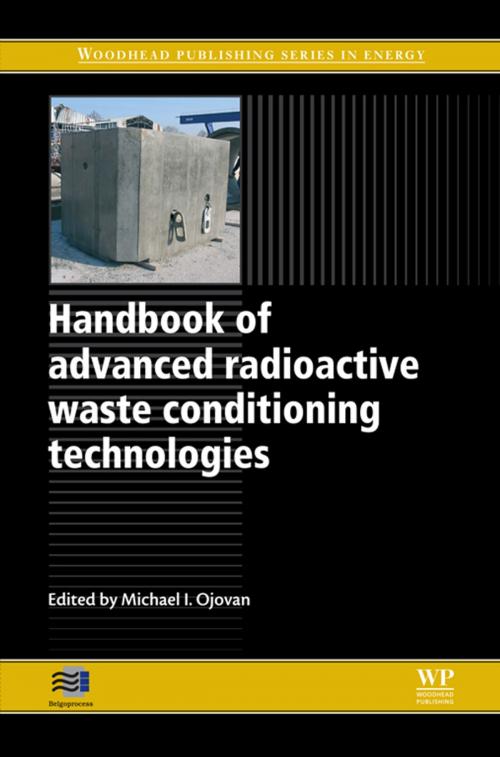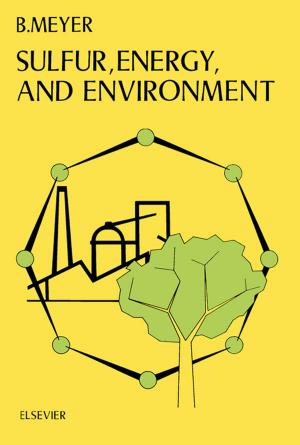Handbook of Advanced Radioactive Waste Conditioning Technologies
Nonfiction, Science & Nature, Technology, Engineering, Environmental| Author: | ISBN: | 9780857090959 | |
| Publisher: | Elsevier Science | Publication: | January 24, 2011 |
| Imprint: | Woodhead Publishing | Language: | English |
| Author: | |
| ISBN: | 9780857090959 |
| Publisher: | Elsevier Science |
| Publication: | January 24, 2011 |
| Imprint: | Woodhead Publishing |
| Language: | English |
Radioactive wastes are generated from a wide range of sources, including the power industry, and medical and scientific research institutions, presenting a range of challenges in dealing with a diverse set of radionuclides of varying concentrations. Conditioning technologies are essential for the encapsulation and immobilisation of these radioactive wastes, forming the initial engineered barrier required for their transportation, storage and disposal. The need to ensure the long term performance of radioactive waste forms is a key driver of the development of advanced conditioning technologies.
The Handbook of advanced radioactive waste conditioning technologies provides a comprehensive and systematic reference on the various options available and under development for the treatment and immobilisation of radioactive wastes. The book opens with an introductory chapter on radioactive waste characterisation and selection of conditioning technologies. Part one reviews the main radioactive waste treatment processes and conditioning technologies, including volume reduction techniques such as compaction, incineration and plasma treatment, as well as encapsulation methods such as cementation, calcination and vitrification. This coverage is extended in part two, with in-depth reviews of the development of advanced materials for radioactive waste conditioning, including geopolymers, glass and ceramic matrices for nuclear waste immobilisation, and waste packages and containers for disposal. Finally, part three reviews the long-term performance assessment and knowledge management techniques applicable to both spent nuclear fuels and solid radioactive waste forms.
With its distinguished international team of contributors, the Handbook of advanced radioactive waste conditioning technologies is a standard reference for all radioactive waste management professionals, radiochemists, academics and researchers involved in the development of the nuclear fuel cycle.
- Provides a comprehensive and systematic reference on the various options available and under development for the treatment and immobilisation of radioactive wastes
- Explores radioactive waste characterisation and selection of conditioning technologies including the development of advanced materials for radioactive waste conditioning
- Assesses the main radioactive waste treatment processes and conditioning technologies, including volume reduction techniques such as compaction
Radioactive wastes are generated from a wide range of sources, including the power industry, and medical and scientific research institutions, presenting a range of challenges in dealing with a diverse set of radionuclides of varying concentrations. Conditioning technologies are essential for the encapsulation and immobilisation of these radioactive wastes, forming the initial engineered barrier required for their transportation, storage and disposal. The need to ensure the long term performance of radioactive waste forms is a key driver of the development of advanced conditioning technologies.
The Handbook of advanced radioactive waste conditioning technologies provides a comprehensive and systematic reference on the various options available and under development for the treatment and immobilisation of radioactive wastes. The book opens with an introductory chapter on radioactive waste characterisation and selection of conditioning technologies. Part one reviews the main radioactive waste treatment processes and conditioning technologies, including volume reduction techniques such as compaction, incineration and plasma treatment, as well as encapsulation methods such as cementation, calcination and vitrification. This coverage is extended in part two, with in-depth reviews of the development of advanced materials for radioactive waste conditioning, including geopolymers, glass and ceramic matrices for nuclear waste immobilisation, and waste packages and containers for disposal. Finally, part three reviews the long-term performance assessment and knowledge management techniques applicable to both spent nuclear fuels and solid radioactive waste forms.
With its distinguished international team of contributors, the Handbook of advanced radioactive waste conditioning technologies is a standard reference for all radioactive waste management professionals, radiochemists, academics and researchers involved in the development of the nuclear fuel cycle.
- Provides a comprehensive and systematic reference on the various options available and under development for the treatment and immobilisation of radioactive wastes
- Explores radioactive waste characterisation and selection of conditioning technologies including the development of advanced materials for radioactive waste conditioning
- Assesses the main radioactive waste treatment processes and conditioning technologies, including volume reduction techniques such as compaction















